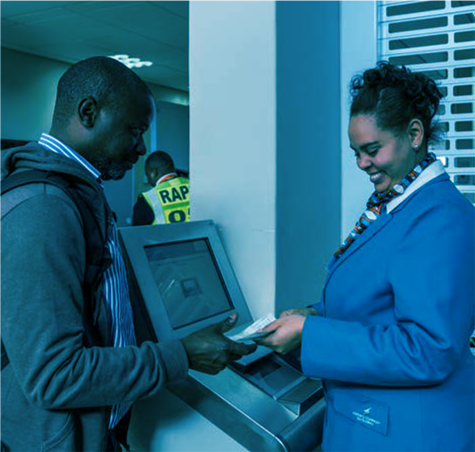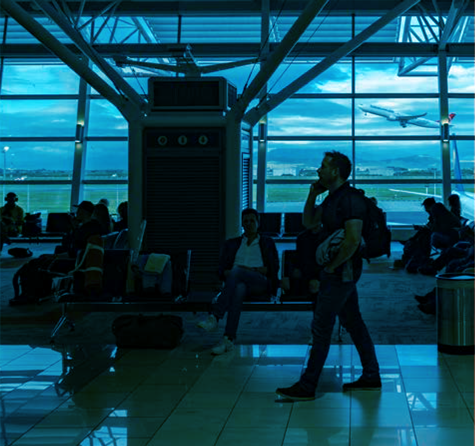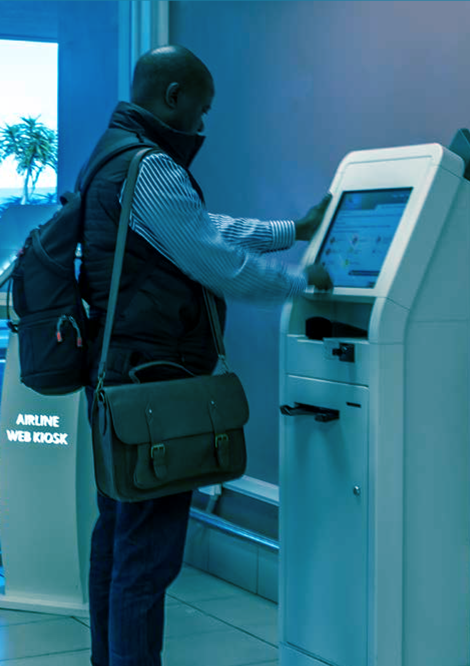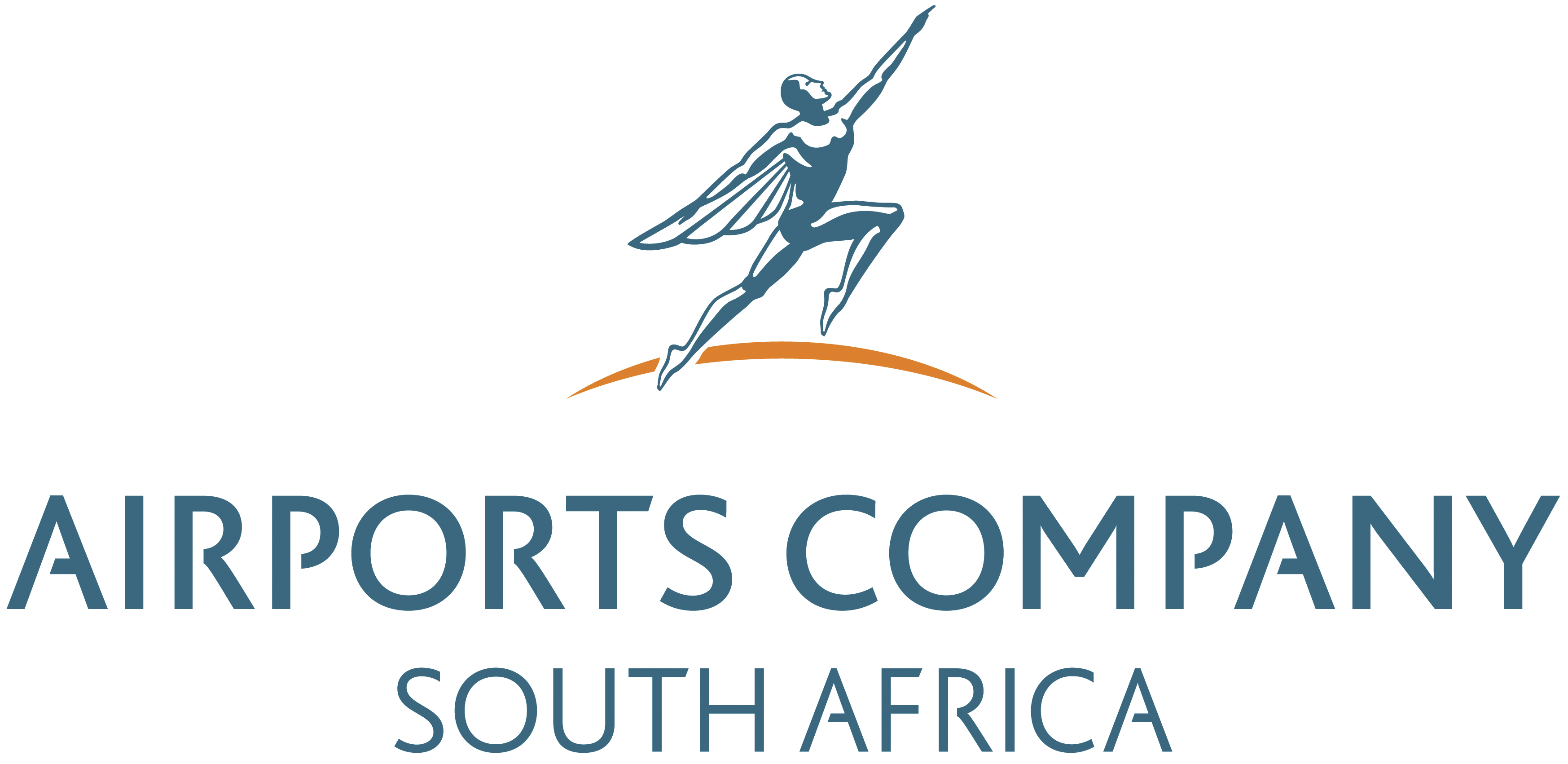MESSAGE FROM THE CHAIRMAN OF THE BOARD

"While recovery has been slower than projected, ACSA has shown remarkable resilience and adaptability in navigating the many challenges we have had to face since 2020."
Dr Sandile Ngoxina Chairman
The 2022/23 financial year proved to be more challenging than we had anticipated, partly due to the ongoing impact of the pandemic, especially during the first half of the year. This was exacerbated by the far-reaching impact of the war in Ukraine. At home, we faced the knock-on effects of the severe flooding in KwaZulu-Natal in April and, for various reasons, also experienced constraints on our supply chains throughout the year. The situation was further exacerbated by precipitous increases in the price of jet fuel and the cessation of operations by two of domestic airlines, which put constraint on supply of seats by over 40%. While recovery has therefore been slower than projected, ACSA has shown remarkable resilience and adaptability in navigating these and the many other challenges we have had to face since 2020.
The implementation of our Recover and Sustain Strategy and our revised Corporate Plan has placed us in a firm position to remain sustainable in the short-term and to develop and grow in the medium- and long-term.
We have seen improvement in the financial performance of the Group, with positive cash generated from operations due to the increase in air traffic movements and passenger numbers. Our liquidity has been further supported by a successful R1,7 billion bond issue in the third quarter of the 2022/23 financial year. This is an indication that investors have confidence in the Group and recognise the progress made on our Recover and Sustain Strategy. Our loan covenant ratios are within the required thresholds for the first time in three periods.
It is within this context that we are beginning to implement the Growth Strategy and strategic initiatives we approved during the previous period, which we are using to create a bridge between our recovery phase and the growth phase we envisage beyond that. This is focused on rebooting the large infrastructure projects we have had to put on hold since 2020 and on diversifying our revenue stream.
The integrated roadmap that is built into this plan also allows for our focus on transformation, both within our business and in our society as a whole, to again receive the attention and financial support it requires and deserves. In addition, we have put in place new partnership models that will promote a holistic approach to broad-based transformation. These models allow for partnerships with state entities as well as for service contracts, management contracts, alternative financing, alternative value creation, public-private partnerships, and concessions. They are intended to reflect the fact that we strive to be not only a sustainable business but an ethical business; one that supports the objectives of the National Development Plan and the UN’s Millennium Development Goals. As one of the largest network of airports under a single operating authority in the world, we continue to recognise our role as a change agent and are mindful of this in everything we do.

Leadership
The Board and management responded to the challenges we were confronted with in a proactive and practical way without losing sight of our strategic pillars and goals. We defined clear priorities under difficult circumstances and made swift and necessary decisions even in the face of great uncertainty.
We have embedded a culture of agility and decisive action while always recognising the impact that the decisions we have had to make have on our staff and other stakeholders. This has not only enabled us to attain a solid recovery position but has also positioned us to develop into a stronger, more diversified business in the years to come.
A strategic approach
Our Recover and Sustain Strategy, which is the framework we have been using to manage the business through these challenges and into the post-COVID-19 recovery phase, was put into place after rigorous engagement with our investors and lenders, the international ratings agencies, the Regulating Committee, our shareholders, the Portfolio Committee on Transport, our employees, and organised labour. All of these stakeholders have been unfailing in their support of our efforts, and this has enabled us to move forward decisively.
While we have naturally had to adapt to events in the external environment, our approach has always been informed by our three strategic pillars: Run Airports, Develop Airports and Grow Footprint.
In the short-term, we are continuing to focus on our core business of running airports to secure financial and operational sustainability. Within the framework of existing infrastructure and capabilities, we are also focusing on diversifying our revenue streams to offset the impact that the pandemic and various macroeconomic factors have had on aeronautical revenue. And, as we secure our recovery, we are simultaneously resuming our plans for infrastructure development, which have been on hold since the start of the COVID-19 pandemic. In the medium- to long-term, our aim is to derive approximately half of our revenue from aeronautical sources and half from non-aeronautical sources.

More immediately, our intention is to regain our share of international passenger traffic, develop our footprint in the African continent and promote a firmer recovery in the leisure and “friends and family” segments of the domestic market. Income from cargo is, of course, an important part of this equation and, with a notable recovery in load factors during the reporting period, we will continue to focus strongly on this area of our business. We will, in particular, be working to increase the aviation share of the total cargo market.
To support these objectives, we will continue to focus on our digitalisation journey and on implementing innovations such as smart security systems, touchless check-in facilities and app-based features and benefits for passengers and other airport users alike. We will also remain responsive to advances in technology and will continue to monitor and manage the risk of cyber-attacks diligently.
In doing this, we remain mindful of our responsibilities and role as a catalyst for the recovery in air passenger travel, the growth in air cargo volumes and the economic recovery and development of our country. We continue to work with our strategic partners, stakeholders, and government agencies to implement our strategies and plans. Our primary objective at this stage is to consolidate our recovery and to return to planning for growth in the future.
For further information on our strategy, please see the CEO's Message and the section on How Our Strategy Creates Value in this report.
Collaborating with our stakeholders
Constant engagement with our stakeholders throughout the past three periods has enabled us to strengthen and cement these relationships and build platforms for future collaboration and development.
Going forward, we will continue to prioritise active engagement with our stakeholders, including strategic partners and government agencies, in order to realise the objectives of our Recover and Sustain Strategy and Growth Strategy. As always, we remain committed to building win-win partnerships with our stakeholders in a way that will benefit both our country’s aviation sector and the economy at large.
Transformation
We therefore continue to play a critical role in the transformation of the aviation industry and supporting industries by maximising commercial opportunities in the short- and medium-term.
We also continue on a purposeful, values-driven journey to enhance procurement from black-owned businesses and to facilitate their development. While uncontracted capital development projects were put on hold during the pandemic, we are planning to resume many of these projects in line with the latest version of our Corporate Plan. Projects currently underway in commercial operations are continuing.
Electricity Crisis
As a Group, we understand that reliable and accessible electricity is the lifeblood of modern society and a critical driver of economic growth. Over the past year, we have witnessed the repercussions of electricity shortages on industries, households, and overall development. We acknowledge the importance of addressing this challenge head-on and want to assure you that we are fully committed to finding sustainable solutions to negative effects of load-shedding and energy insecurity.
Governance
Our governance processes have proven their strength and agility over the past three financial years, not least in the seamless transition to conducting meetings and other business virtually.
Apart from the regular schedule of Board and Board Committee meetings, special meetings were held throughout the reporting period to deal with evolving challenges and urgent matters. Our executive and management teams continue to operate in an interconnected and interdisciplinary way that helps us to identify and mitigate risks timeously, operate effectively and plan for future growth.
Looking ahead
Regretfully, the global economic outlook remains uncertain. This is largely due to the sharp downturn in growth expected during the current financial year, with the World Bank having lowered growth forecasts for 95% of advanced economies and nearly 70% of emerging and developing economies. The latter are expected to face a multi-year period of slow growth driven by heavy debt burdens and low levels of direct foreign investment as capital is absorbed back into advanced economies that are dealing with extremely high levels of government debt and rising interest rates. This will undoubtedly have an impact globally and we will be monitoring this closely.
Together with disruptive global shifts in living, working, and travelling patterns as well as operational constraints in key markets, this is almost certain to affect the recovery in global air traffic volumes. It is for this reason that we will continue to focus on diversifying our revenue and on re-defining the role of airports within the broader city or metropolitan environment.


Planning for the implementation of our Aerotropolis Strategy is continuing within the context of current financial constraints and capital projects related to this strategy will be commissioned as revenue allows. The concept behind this strategy is to significantly develop our three largest airports, which will vastly improve both their passenger and cargo handling capabilities.
At home, consumers continue to be under considerable pressure, with unemployment remaining high and the cost of living rising relentlessly. This will almost certainly impact on domestic recovery, and we are putting measures in place to address this.
Astute management of risks, expenditure and operational capability will continue to be fundamental to the way in which we do business. This will, in turn, support our post-pandemic recovery as well as our future prospects.
Appreciation
While there was a notable drop in the number of deaths attributed to the COVID-19 pandemic during the reporting period, deaths did nevertheless continue to occur, especially during the first half of the year. On behalf of the Board, I would like to extend my deepest condolences to the employees and stakeholders who lost loved ones during this period.
Special thanks are due to our employees, who dealt with the many difficulties they had to face with grace and dedication. Their commitment to our purpose and values as an organisation is recognised and appreciated. Above all, it is their work in helping to keep the airport environment safe for passengers and other users that has been essential to our recovery.
I would like to thank the CEO, CFO, and executive management for their dedication, wisdom, and insight during the period, as well as for keeping the business steady through yet another very difficult year. Their judicious leadership and considered decision-making have been critical to maintaining our sustainability.
I would also like to thank the retired Board members, Ms Nosizwe Nokwe-Macamo, Ms Kemira Esterhuizen and Mr Graeme, who have steered the Company as it navigated through uncharted waters. I extend a special welcome to the newly appointed Board members, Mr Gcobani Mancotywa, Mr Andile Khumalo, Ms Sibongile and Ms Sambo. We are looking forward to a successful journey with them and their expertise will be of great use to the Company and its success.
Finally, thanks are due to our shareholders, investors, business partners and suppliers for their unwavering support throughout the past three periods. As a business, we look positively towards the future again.

Dr Sandile Ngoxina
Chairman
